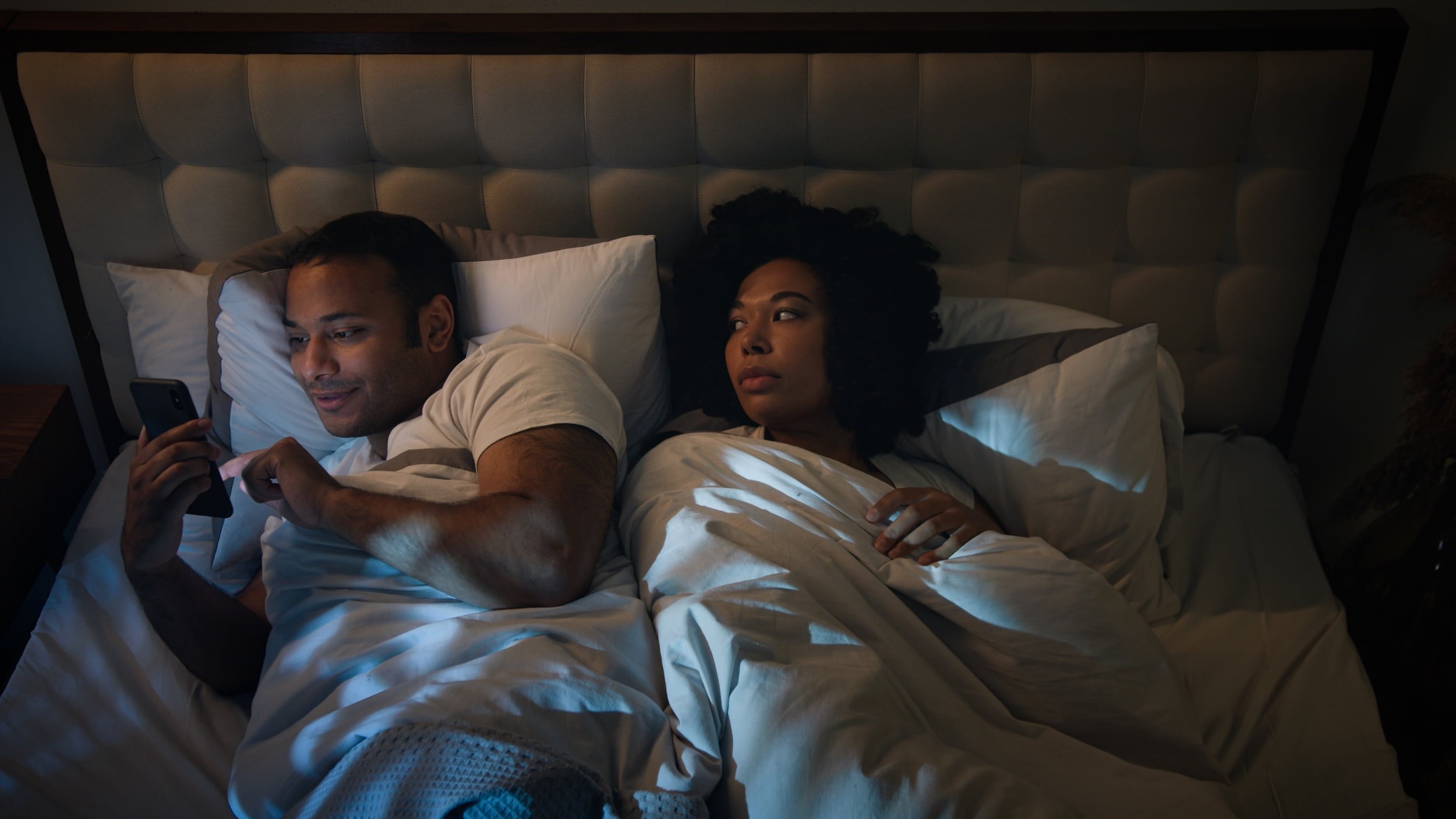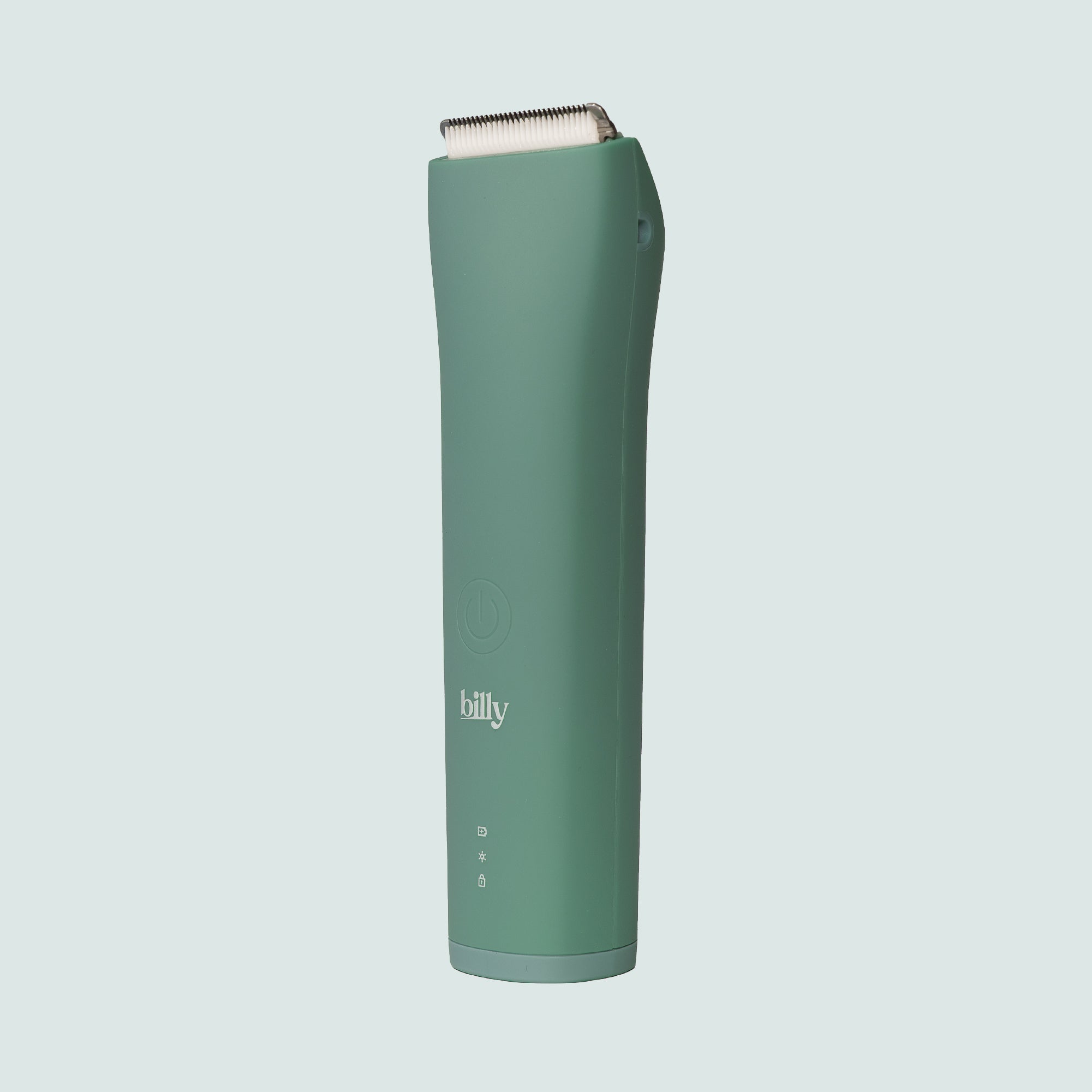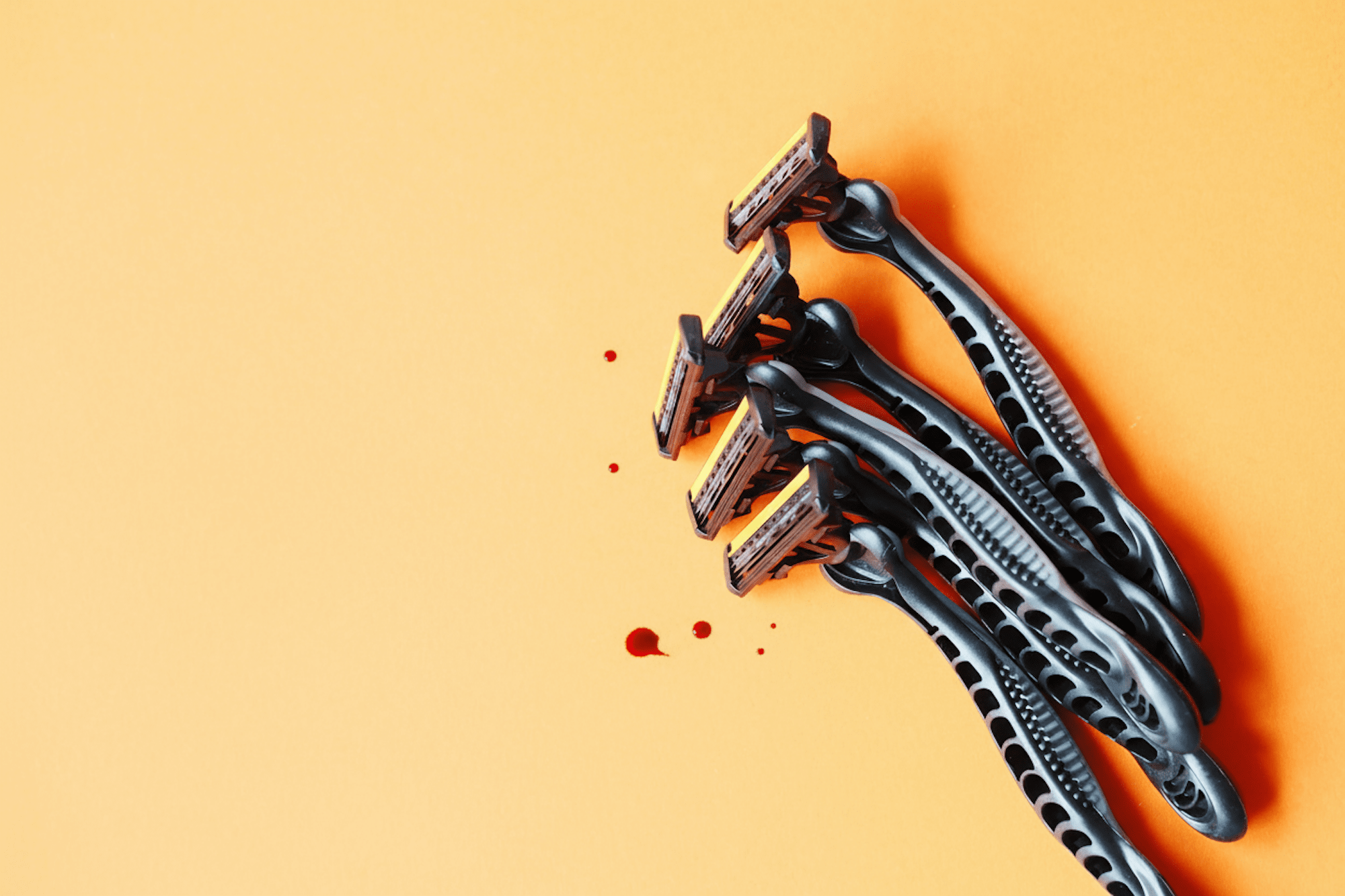Article Summary
1. Environmental toxins = sabotaged libido Microplastics in the brain, testes, and ovaries + endocrine disruptors = early menopause/andropause and less efficient genitals. The toxic environment directly impacts our ability to desire.
2. Sexual problems: 1 in 3 people affected. In men: erectile dysfunction (60% have experienced it), decreased libido (18%), premature ejaculation (33%). In women: decreased desire (30%), difficulty reaching orgasm (20-25%), pain during intercourse (10-20%). But 75% do not dare to seek help.
3. Generalized performance anxiety in young people Cause: Comparison with experienced ex-partners + pressure from porn. Solution: Criticize what you watch (porn = movie) and move from "I have to do" to "I want to do."
4. Emotional Dependence on the Rise Signals: Feeling unwell when the other person doesn't respond. Solutions: Accept that you have it, enjoy the time together, say "I miss you" rather than criticize.
5. Toxic relationships: listen to your instincts Universal signal: "something is bothering me but I don't know what." If it happens 3-4 times with the same person, trust your reptilian brain which never lies.
6. Lasting Relationships: 4 Secrets Revealed Fundamental kindness, sincere love (wanting the best for the other), conflict management, genuine apologies. Goal: solve problems together, not settle scores.
Intro
Let's not kid ourselves: we're living in strange times. On the one hand, we've never been so exposed to sex—social media, ads, TV shows, everything screams that sexuality is everywhere. On the other hand, the numbers are clear: we're having less and less sex, especially among young people.
This paradox is a symptom of a deeper crisis affecting our relationship with intimacy, our bodies, and our relationships. Between invisible environmental toxins, rising emotional dependency, and widespread performance anxiety, our libido is taking a hit. But don't panic: understanding the real causes is the first step toward solving them.
How Plastics Are Sabotaging Your Sex Life
Let's start with the factor no one talks about: environmental toxins. Did you know that microplastics are now found in our brains, testicles, and ovaries? This isn't science fiction; it's reality in 2025.
These tiny plastic particles, combined with the endocrine disruptors we ingest daily, wreak havoc on our hormonal systems. The result: premature menopause, andropause that arrives earlier, and genitals that function less well than before.
Plastic is also found in our arteries. And guess what? Less efficient arteries mean less efficient erections. The link is direct: the toxic environment in which we live directly impacts our ability to desire and experience pleasure.
This isn't to freak you out, but to help you understand that a drop in libido isn't necessarily "in your head." Sometimes it's literally in your body, and it's linked to factors that we individually can't control.
The direct effects on decreased sexual desire or performance are still being researched. It can be said that they influence reproductive and cardiovascular health, and therefore indirectly sexuality, but caution is required.
Emotional Dependence: Symptoms and Concrete Solutions
Let's move on to a more taboo subject: emotional dependency. Contrary to popular belief, it affects both men and women, even if it's less talked about among men.
The warning signs are simple: as soon as your partner doesn't respond to your messages, you're in trouble. As soon as you imagine spending time alone, anxiety mounts. If you recognize yourself in this, don't be ashamed: we all have our flaws.
The first step is to accept that you have it. Denying or minimizing it is useless. Then, instead of beating yourself up, learn to enjoy the moments when the other person is present. Recharge your batteries with dopamine, serotonin, and feel-good hormones. This is what will give you the strength to better resist when they are not there.
And above all, change your communication. Instead of saying "You never respond to my messages" (reproach), say "I miss you" (expressed need). The nuance changes everything: one pushes the other to leave, the other makes them want to stay.
The difference between loving and being in love is also crucial to understand. You can love someone for considered reasons—they're a good person, you get along well, you have common goals. Being in love is deeper, more instinctive: it's in your gut, "under your skin," as the Americans say.
How to Detect a Toxic Relationship Before It's Too Late
There's a universal warning sign we should learn in school: "There's something about this person that bothers me, but I can't say what it is."
If it happens to you once, twice, three times with the same person, listen to your instincts. No need to rationalize, no need to understand why. Your reptilian brain picks up on things that your rational brain can't yet analyze.
The classic mistake? Thinking, "I'm just imagining things," or "Everyone tells me he's a good person." The result: Years later, when you realize it was indeed toxic, you say, "Actually, I think I knew that from the start."
This intuition is your natural alarm system. Trust it, even if you can't explain it rationally.
Performance Anxiety: Causes and Practical Solutions
Performance anxiety is the current problem among young people. Why is it higher now than before? There are several reasons.
First, the partners' experience. Thirty years ago, when a guy met a girl, she had had fewer partners. Today, you know she has experience, she knows what she wants and what she doesn't want. It puts a lot of pressure on her.
Then there's porn. It doesn't just affect men: more and more girls are putting pressure on themselves, saying, "He's probably watched porn, so have I, I have to be up to par." Except that porn is a movie. Period.
The solution? Learn to critique what you're watching. That 45-minute scene? Actually, they took several breaks, ate, refreshed themselves, and then resumed. In the edit, it seems like it's continuous.
And most importantly, change your question. Instead of asking yourself "What should I do sexually?", ask yourself "What do I want to do?" Start by applying this to your daily life: you have 2 hours free, what do you WANT to do? Are you going to eat, where do you WANT to go?
Get used to following your natural impulse rather than the "rules" you've been taught.
Hormonal Contraception and Decreased Desire: What to Do?
The link between the pill and low libido is controversial. Studies contradict each other because they lump all contraceptives together, even though dosages and compositions vary enormously.
The bottom line: If you notice a change in libido after starting contraception, test the change. Switch from a microdose to a standard dose, or vice versa. It's fascinating: one person can freak out on a microdose and feel much better on a standard dose, and another will have the exact opposite.
If your libido improves after the change, that was it. If not, there's another explanation to look for.
The problem is that many people start using contraception before they start having sex—for acne, to regulate their periods, or in anticipation. As a result, they've never experienced sex without hormones. It's hard to make a comparison in this case.
1 in 3 French People Affected: Most Common Sexual Disorders
The numbers are staggering: out of 100 people picked at random on the street, 20 to 30 would say they have sexual problems for which they would like help. And contrary to what you might think, these are not isolated cases or super rare occurrences.
In Men: Erection at the Heart of Concerns
Erectile dysfunction is the clear leader. More than 6 out of 10 men report experiencing it at least once in their lives, and 38% in the last year alone. Penile inflexibility affects between 20 and 24% of men—that's a huge number when you think about it.
Then there's the inability to maintain an erection until the end of intercourse, which affects 18% of men. In more severe cases, 9% report a complete inability to achieve an erection during the period studied.
Men are also affected by decreased libido: approximately 18% report a lack of or decreased sexual desire. And then there are all the ejaculation problems—premature, delayed, or completely impossible. Premature ejaculation alone affects nearly one in three men.
Among Women: Desire in the Foreground
Among women, desire disorder tops the list. According to national surveys, approximately 30% report a loss or absence of sexual desire. This is the number one reason for consultation.
Orgasm difficulties affect between 20 and 25% of women - we speak of anorgasmia, difficulty or delay in reaching orgasm during intercourse. This is far from anecdotal.
Arousal disorders, often associated with vaginal dryness, are a problem for many women who are unable to achieve sufficient levels of physical arousal.
And then there's pain during intercourse—dyspareunia, vaginismus—which affects between 10 and 20% of women, according to studies. It's not "normal" to be in pain, contrary to what we still hear too often.
More rarely, we also find disorders of excessive or compulsive desire, but this is much less frequent.
Couples Who Last 20 Years+: Their 4 Secrets Revealed
After 25 years of observing couples in counseling, certain patterns emerge among those who truly last. Those who, even at 70, still exude happiness as a couple.
First secret: fundamental kindness. These people have no malice in them. They may be angry, disappointed, but they never take pleasure in hurting others.
Second secret: they truly love each other. Not necessarily passionately in love 24/7, but they sincerely want the best for the other person. When one succeeds, the other is happy. When one suffers, the other suffers too.
Third secret: conflict management. They seem like they never argue, but in reality, they manage tensions so well that they never escalate. As soon as they feel things are heating up, they have this ability to say, "We're not feeling well, let's talk about it later."
Secret number four: They know how to apologize for real. Not "I'm sorry if I hurt your feelings, but you said that to me." No. "What I said to you earlier was harsh, I'm sorry." Period. We settle problems, not scores.
These couples have a common goal: when there is a difficulty, we don't try to find out who is right or wrong, we try to find a way out of it together.
Practical Guide: How to Boost Your Libido Naturally
Now that we've covered the problems, let's move on to concrete solutions.
Scheduled digital disconnection. If you're in a relationship, establish phone-free time. It's hard to go from "scrolling TikTok" to "let's make love." Complicity needs space to blossom, and it rarely happens between two Instagram notifications.
Diversify your information sources. The more different opinions you listen to on the same topic, the more you'll form your own opinion. Stop following only one type of content about sexuality. Listen to podcasts, read a variety of articles, and talk to different friends.
Back to instinct. Practice listening to what you want to do rather than what you think you should do. Start with simple things: you're hungry, what would really please you? Then gradually apply that to your sexuality.
Accept your uniqueness. There's no "normal" way to function sexually. Some people need an emotional connection first, others a physical connection. Some are visual, others auditory, others tactile. Find your way of functioning and embrace it.
When to consult. If a problem has persisted for more than a few months, if it's impacting your quality of life or that of your relationship, don't wait two and a half years. Teleconsultations now exist; they're simpler and less intimidating.
And remember: something is only considered a sexual dysfunction if the person is suffering from it. If you're comfortable the way you are, even if it's different from the "norm," then you're fine.
And Billy in all this? 1 Single Objective: To Love Yourself As You Are To Better Love Others
At Billy, we believe in one thing: intimacy should never be a source of stress or insecurities. Our mission goes far beyond creating intimate care products. We want to help you embrace yourself and love yourself just the way you are, because we believe it's the foundation of a healthy relationship with your body and your partner.
Your hair, your style. Your body, your choices. Whether you prefer to be completely shaved, simply groomed, or natural, the important thing is that it's YOUR choice, not that of others or dictated to you.
Because in fact, self-confidence starts there: accepting your body, taking care of it as you wish, without judgment. And when you feel good about yourself, everything else follows: libido increases, communication improves, intimacy becomes a pleasure again and not a source of anxiety.
We create products designed for all bodies, all desires, all styles. But above all, we create a community where everyone can be themselves, without shame or insecurities. Because there's nothing sexier than someone who fully embraces their true self.
The Billy mower is just the tool. The real change happens in your head: the day you decide that your well-being and pleasure deserve attention, regardless of what others think.
THE mega FAQ special sexual crisis
My libido has dropped, is it serious?
Not necessarily. A decrease in libido can have many causes: stress, fatigue, relationship problems, hormonal contraception, or even environmental toxins. If it lasts more than a few months and it bothers you, don't hesitate to talk to a professional.
How do I know if I really have a sexual disorder?
Simple: Does it cause you pain? If you function differently from the "norm" but you're happy that way, then you're fine. A sexual disorder is only a sexual disorder if it negatively impacts your quality of life.
Can microplastics really affect my sexuality?
Yes, it's scientifically proven. Microplastics are found in the brain, testicles, and ovaries. Combined with endocrine disruptors, they disrupt the hormonal system and can cause erectile dysfunction, low libido, and premature menopause.
I have erectile dysfunction, what should I do?
First, breathe. More than 6 out of 10 men have experienced it. If it's occasional and stress-related, it's normal. If it becomes recurrent, seek help: it could be physical (blood circulation) or psychological (performance anxiety).
Why does it hurt during sex?
Pain during intercourse is never normal. It could be due to vaginismus, vaginal dryness, an infection, or other causes. Consult a gynecologist or a sexologist; it can be treated very well.
Can premature ejaculation really be cured?
Absolutely. It affects nearly one in three men, so you're far from alone. Breathing techniques, pelvic floor exercises, behavioral therapies... There are plenty of effective solutions.
How to manage anxiety before sex?
First thing: stop putting pressure on yourself. Sex isn't a performance, it's about shared pleasure. Focus on the sensations rather than the result. And communicate with your partner!
Porn gave me false expectations, how do I deconstruct that?
Get into the habit of critiquing what you watch. Porn is a film with editing, pauses, and artifice. Diversify your sources of information on sexuality and remember that every body is different.
I can't have an orgasm, is it my fault?
No, it's not your fault. 20-25% of women have difficulty reaching orgasm. Take the time to explore your body, alone first. Female orgasm often requires more time and clitoral stimulation than what we see in movies.
My partner has more experience than me, I stress
Experience is good, but everyone works differently. What worked with their exes won't necessarily work with you, and vice versa. Think of it as a shared exploration rather than an examination.
How do I know if I am emotionally dependent?
If you feel bad as soon as your partner doesn't reply to your messages, if the idea of spending time alone makes you anxious, if you need their constant validation... you probably have an emotional dependency. It's not a shame, it can be worked on.
How to get out of emotional dependence?
Step one: Accept that you have it. Then, learn to enjoy the moments when the other person is present rather than worrying about their absence. Change your communication: say "I miss you" instead of "you never respond."
I feel like there's something wrong with my relationship but I can't put my finger on what it is.
Listen to your instincts. If something repeatedly bothers you without you being able to explain it, that's a red flag. Your reptilian brain is picking up on things that your rational brain can't yet process.
My partner and I have opposing political views, can this work?
It depends. If it's not the main topic of your lives and you're not at opposite extremes, it can work. But if it creates tension with every news story, it's going to be complicated in the long run.
How to make a relationship last?
Based on 25 years of observation: fundamental kindness, truly loving each other (not just being in love), knowing how to manage conflicts, apologizing sincerely. And above all: solving problems together rather than settling scores.
Can the pill really affect my libido?
Yes, it's possible. If you notice a change after starting birth control, try changing the dosage or type. Some women do better with a low dose, others with a standard dose.
I started the pill before my sex life, how do I know if it affects me?
It's complicated since you've never experienced your sexuality without hormones. You can try a contraceptive break (with another protection) or switch types to see if you feel a difference.
What alternatives to the pill exist?
Hormonal or copper IUDs, condoms, diaphragms, spermicides... 100% natural contraceptives are also being developed in the United States. Talk to your gynecologist to find what's right for you.
Why don't men and women function the same sexually?
It's linked to evolution and biology. Men are more visually stimulated, women more by emotional context and connection. But beware of generalizations: each person is unique.
Is it true that women close their eyes during sex?
Often yes, because they need to focus on their internal sensations. Men keep their eyes open more often because they are visually stimulated. But both can benefit from variation.
Male and female orgasm, what's the difference?
Physiologically, it's very similar: same contractions, same increased heart rate. The main difference is that in men, pleasure and reproduction are linked, in women they are separate.
I have a complex about the size of my penis, what should I do?
Breathe. 5% of women find their partner "too big," only 2% find him "too small." The average erect size is 13cm. And remember: female pleasure depends primarily on clitoral stimulation.
How do I manage my insecurities in bed?
Focus on how you feel rather than how you look. A partner who desires you won't judge you based on details that only you notice. Self-confidence can be learned and worked on.
Should I shave my private parts?
Your body hair, your choice. Whether you prefer shaved, trimmed, or natural, the important thing is that it's YOUR decision. A good partner will respect your body choices.
What are the best sex positions?
There are no universal "best" positions. It depends on your body, your preferences, your body type. Small penis → missionary/doggy style. Big penis → woman on top. Experiment and communicate.
How can I improve my technique in bed?
Listen to your partner, observe their reactions, ask them what they like. Everyone works differently. And remember: foreplay is often more important than penetration.
Oral sex, any advice?
Take your time, vary the rhythms and pressure, and use your hands too. For her: pay attention to the teeth, explore the entire area. For him: don't neglect the testicles and perineum. And always: ask what pleases!
How to avoid sexual routine?
Change your surroundings, your schedules, your positions. Communicate about your desires and fantasies. Create a bond outside of the bedroom. And sometimes, accept the calm phases: the important thing is to rediscover the passion at times.
We haven't made love for months, is that serious?
It depends. If you're both okay with it, no problem. If one of you is suffering from it, you need to talk about it. It's often related to stress, fatigue, or a lack of communication.
Libido discrepancy in a couple, what to do?
This is very common. Recreate the bond, spend time together without screens, and rediscover the seduction of the beginning. And above all: communicate without reproach about your respective needs.
When should I consult a sexologist?
If a problem has persisted for several months and is impacting your quality of life or that of your partner, on average, people wait two and a half years before seeking help: that's way too long!
How to choose a good sexologist?
Choose a sexologist or a specialized psychologist. You can start with a teleconsultation if that's easier. The important thing is that you feel comfortable and listened to.
Is a sexology consultation expensive?
It varies, but it's often reimbursed if you consult a psychiatrist-sexologist. Otherwise, expect to pay €60-100 per session. Some platforms offer more affordable teleconsultations.
My partner refuses to consult, what should I do?
You can't force someone to seek help. Start by going alone if the problem is affecting you. Sometimes, seeing the benefits in others can encourage you to take the plunge.
Does sexuality change with age?
Yes, it's normal. Hormones change, the body evolves, but sexuality can still be fulfilling. You just have to adapt: more time for arousal, more lubrication needed, other erogenous zones to explore.
Menopause and sexuality, how to manage them?
Hormones decline, and lubrication may decrease. Solutions: lubricants, hormonal treatments if appropriate, more foreplay. And remember: experience often compensates for physical changes.
Can you have a fulfilling sex life after 50?
Absolutely! Many couples say their best sexual experience was after age 40-50: less stress, more self-awareness, more time. Age can liberate sexuality.
Important reminder: This FAQ is for informational purposes. For any persistent problems, do not hesitate to consult a healthcare professional.






















Share on your networks: